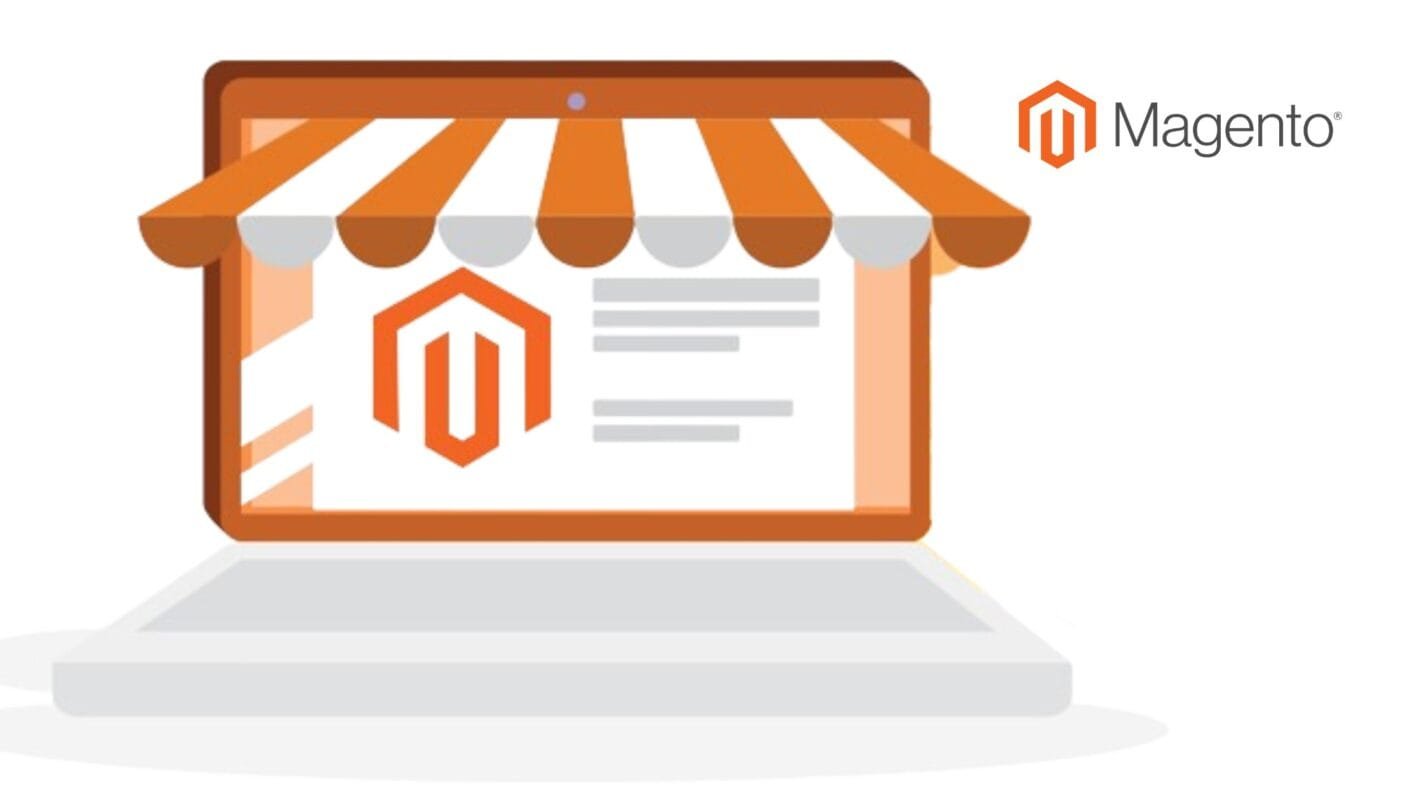Drupal Developers for E-commerce: Customization, Scalability, Trends

In today’s digital landscape, an efficient and visually appealing online presence is paramount for any business aiming to thrive in the competitive e-commerce arena. As businesses look to create business website solutions that not only captivate their audiences but also scale with their growth, the role of Drupal developers becomes increasingly critical. This blog dives deep into how Drupal can transform your e-commerce platform, the customization capabilities it offers, and why investing in the right Drupal talent—including Drupal Freelancers and hire Drupal website developer professionals—can propel your business forward.
In this comprehensive guide, we’ll cover everything from Drupal’s robust architecture to the modern trends reshaping the e-commerce sector. Whether you’re considering hiring a front end web developer, looking for web developers to join your team, or aiming to leverage website and application development for maximum impact, this blog provides the insights you need.
The Rise of Drupal in the E-commerce World
Drupal has long been a favorite among businesses seeking flexibility, security, and a high level of customization. Unlike other platforms that may force a one-size-fits-all solution, Drupal empowers developers to build tailor-made systems that meet the unique needs of an e-commerce site. With a thriving community and a wide array of modules, Drupal stands out as a platform that can handle complex content structures and user experiences without compromising performance.
Why Choose Drupal for E-commerce?
- Customization at Its Core: Drupal offers granular control over design and functionality, making it the ideal choice for businesses that want to create business website solutions that reflect their unique brand identity. Custom modules, themes, and integrations allow businesses to craft a seamless online experience.
- Scalability: As your business grows, your platform must evolve. Drupal is built to handle increased traffic, more complex operations, and data-intensive processes, ensuring your site remains fast and responsive.
- Security: E-commerce sites handle sensitive customer information, making robust security features a must. Drupal’s proactive security measures and community vigilance help safeguard your online store.
- SEO & Website Design Integration: With capabilities that support website design and seo services, Drupal enables businesses to optimize their sites for search engines and deliver an engaging user experience, driving organic traffic and boosting conversion rates.
Customization: Tailoring Your E-commerce Experience
One of Drupal’s standout features is its unmatched customization capability. For businesses looking to stand out in the crowded e-commerce market, a cookie-cutter website simply won’t suffice. Instead, Drupal provides the tools needed to develop a platform that is as unique as your brand.
Modular Architecture
Drupal’s modular system allows developers to add, remove, or modify functionality without overhauling the entire system. This modular approach means that even if you’re looking for custom e-commerce solutions or need to integrate with third-party tools, Drupal’s ecosystem is equipped to handle it.
- Custom Themes and Layouts: With a focus on visual appeal and user experience, Drupal allows website designer hire professionals and hire web designer experts to craft unique themes and layouts that align with your brand’s vision.
- Integration with Other Platforms: Whether you need to integrate with a CRM system or leverage web application development frameworks, Drupal’s extensive API support makes it easy to connect with other systems. This is especially important if you plan to make app for website enhancements or require additional backend functionalities.
Flexible Content Management
For e-commerce sites, managing a diverse range of content—from product listings and customer reviews to blog posts and multimedia content—is essential. Drupal’s content management framework (CMF) offers flexibility in organizing and displaying content.
- Dynamic Content Types: Developers can create custom content types that cater specifically to e-commerce needs, whether it’s product catalogs, promotional banners, or customer testimonials.
- User Roles and Permissions: Ensuring that the right people have access to the right content is critical. Drupal allows you to define user roles and permissions, which is useful when you need to hire web developers or manage a team that includes freelance web developers and freelance website designers.
Enhanced User Experience (UX)
A seamless user experience is non-negotiable for an e-commerce platform. Drupal supports responsive design, ensuring that your site looks great and performs well on any device.
- Mobile-First Design: With more shoppers using mobile devices, Drupal’s mobile-friendly design capabilities ensure that your e-commerce site is accessible and attractive on smartphones and tablets.
- Personalization and Recommendation Engines: Modern Drupal solutions allow for personalized content delivery, which can drive customer engagement and improve sales conversion rates. This is key when you’re aiming to build cool ecommerce websites that captivate your audience.
Scalability: Building a Future-Proof E-commerce Platform
As your business grows, so do the demands on your website. Whether it’s an influx of traffic during peak sales seasons or the addition of new product lines, scalability is a crucial consideration for any e-commerce platform. Drupal is engineered to handle high volumes of traffic and data without sacrificing performance.
Robust Infrastructure
Drupal’s architecture is designed to be robust, making it a reliable foundation for large-scale e-commerce operations. With the ability to support thousands of concurrent users, Drupal ensures that your site remains operational and efficient, even under heavy load.
- Load Balancing and Caching: Effective load balancing and caching strategies are built into Drupal, which help maintain fast response times and optimal performance.
- Database Optimization: Drupal supports advanced database management systems that can handle complex queries and large datasets, ensuring smooth operations even during traffic surges.
Future-Proofing Your Business
Investing in a scalable platform is investing in the future of your business. Drupal’s flexible architecture allows for seamless upgrades and integrations as new technologies emerge.
- Headless CMS Capabilities: As the trend towards decoupled or headless CMS grows, Drupal is well-positioned to integrate with modern front-end frameworks. This means you can easily integrate with a front end web developer team to build progressive web apps and responsive interfaces.
- Cloud-Native Solutions: With the increasing shift towards cloud computing, Drupal’s compatibility with cloud-native architectures ensures that your e-commerce site can grow alongside your business needs.
Custom Modules and Plugins
One of the key benefits of Drupal is its ability to integrate custom modules tailored to your specific business needs. Whether you need to enhance your checkout process or add advanced search functionalities, Drupal’s extensive library of modules allows you to extend your site’s capabilities without compromising performance.
- API Integrations: For businesses that require sophisticated integrations—whether with payment gateways, inventory systems, or marketing automation tools—Drupal’s API framework offers the flexibility to incorporate these features seamlessly.
- Third-Party Plugins: Drupal supports integration with various third-party plugins, ensuring that your site can adapt to new e-commerce trends, including those driven by expert shopify developers and shopify expert developer innovations. Although Shopify is a separate platform, the trend of integrating best practices from multiple systems is influencing Drupal’s evolution.
Modern Trends in Drupal E-commerce Development
The e-commerce industry is dynamic, with trends that continuously reshape how businesses interact with customers. Drupal remains at the forefront of these changes, adapting to modern requirements with new tools and techniques that enhance both functionality and user experience.
Headless and Decoupled Architectures
A growing trend in e-commerce development is the use of headless CMS architectures. In a headless setup, Drupal serves as the backend content repository while the front end is managed by modern JavaScript frameworks such as React, Angular, or Vue.js. This separation offers several benefits:
- Improved Performance: Decoupling the front end from the backend can lead to faster load times and a more dynamic user experience.
- Enhanced Flexibility: Developers can build custom front-end applications that deliver unique user experiences tailored to your business’s needs.
- Omni-Channel Integration: A headless architecture makes it easier to distribute content across multiple channels, including mobile apps and social media platforms, ensuring a consistent brand experience.
Mobile Optimization and Progressive Web Apps (PWAs)
With mobile traffic surpassing desktop usage in many sectors, mobile optimization is a critical factor in e-commerce success. Drupal supports responsive design principles, and many developers are now creating Progressive Web Apps (PWAs) that offer an app-like experience on mobile devices.
- Offline Capabilities: PWAs can provide offline functionalities, which is essential for retaining customer engagement even when connectivity is an issue.
- Push Notifications: Modern e-commerce sites are leveraging push notifications to keep customers informed about promotions, new product launches, and special offers.
- User-Centric Design: By focusing on a mobile-first approach, Drupal developers can create websites that cater specifically to the needs of mobile users, ensuring seamless navigation and improved conversion rates.
Integration with Emerging Technologies
The e-commerce landscape is continuously being shaped by emerging technologies. Here’s how Drupal is keeping pace:
- Artificial Intelligence (AI) and Machine Learning (ML): AI-driven personalization, chatbots, and recommendation engines are being integrated into Drupal-based e-commerce sites to enhance user experience and drive sales.
- Voice Commerce: With the rise of smart speakers and voice assistants, integrating voice search and voice-activated commands is becoming a trend. Drupal’s flexible architecture supports these innovations, ensuring your site is ready for the future of voice commerce.
- Augmented Reality (AR): AR is transforming the shopping experience by allowing customers to visualize products in their environment. Drupal’s modular design facilitates the integration of AR plugins and modules, enabling a more immersive shopping experience.
SEO and Content Marketing Strategies
A robust e-commerce site isn’t just about functionality; it’s also about being found by your target audience. Drupal’s inherent SEO-friendly features—combined with modern website design and SEO services—help improve search engine visibility and drive organic traffic.
- Customizable URLs and Meta Tags: Drupal allows you to customize URLs, meta tags, and other SEO elements to ensure your site ranks well in search engine results.
- Content Marketing Integration: With a flexible content management system, Drupal supports integrated content marketing strategies. Whether you’re working with freelance web developers or hiring a website freelance developers team, the platform provides the necessary tools to manage blogs, landing pages, and promotional content.
- Analytics and Reporting: Detailed analytics modules help track user behavior, providing insights that can be used to refine SEO strategies and improve the overall user experience.
Hiring the Right Drupal Developers for Your E-commerce Needs
Building an outstanding e-commerce platform requires more than just a robust CMS; it demands a team of skilled professionals who can harness Drupal’s full potential. Whether you’re looking to hire web developers, hire web designer, or even seeking freelance website designers and website freelance developers, finding the right talent is critical.
Where to Start
- Define Your Requirements:
Before you embark on your hiring journey, clearly define what you need. Are you planning to build a custom module? Do you need to integrate multiple third-party systems? Knowing your requirements helps narrow down the search for the right Drupal Freelancer or hire Drupal website developer. - Search for Experienced Professionals:
Look for developers with a strong track record in both Drupal development and e-commerce. Their portfolio should demonstrate successful projects, ideally showcasing cool ecommerce websites and advanced ecommerce site design concepts. Consider professionals who also have experience with website design and seo services, as this is often an integral part of modern e-commerce platforms. - Evaluate Technical Skills and Soft Skills:
Beyond technical proficiency, effective communication, problem-solving, and a proactive approach are essential. Whether you decide to hire web developers on a full-time basis or collaborate with freelance web developers, ensure they can articulate their strategies and work seamlessly with your existing team.
Benefits of Hiring Specialized Talent
- Customization Expertise:
When you hire a specialized Drupal developer, you benefit from their deep understanding of the platform’s customization capabilities. They can tailor your e-commerce site to meet your unique business needs, ensuring that every element—from user interface design to backend functionality—aligns with your strategic goals. - Scalability and Future Growth:
Expert developers not only build for today but also plan for the future. They can architect your site in a way that supports growth, ensuring that your platform remains robust even as traffic and data volume increase. - Enhanced Security:
With cyber threats on the rise, having a developer who understands Drupal’s security framework is invaluable. They can implement best practices and keep your site secure, building trust with your customers.
Where to Find Top Drupal Talent
- Job Boards and Freelance Platforms:
Platforms dedicated to web application development and hire web developers can connect you with experienced Drupal professionals. - Agency Partnerships:
Consider partnering with a digital agency that specializes in website and application development. These agencies often offer a range of services from front end web developer expertise to full-stack development teams. - Networking and Community Events:
The Drupal community is vibrant and active. Attending Drupal meetups, conferences, and online forums can help you connect with passionate professionals who are on top of the latest e-commerce trends and innovations.
Modern Development Practices and Long-Term Trends
In a world where digital transformation is accelerating, the practices and trends shaping e-commerce development are constantly evolving. For businesses seeking to stay ahead of the curve, understanding these trends is essential.
Agile and DevOps in Drupal Development
The adoption of Agile methodologies and DevOps practices is transforming the way Drupal projects are managed and executed. These methodologies allow for:
- Faster Iteration and Deployment:
Agile practices enable teams to release new features and updates quickly, ensuring that your e-commerce platform remains competitive and relevant. - Continuous Integration and Continuous Deployment (CI/CD):
With robust CI/CD pipelines, Drupal developers can streamline updates, reducing downtime and ensuring that new features are rolled out smoothly. - Improved Collaboration:
When you hire website developers or collaborate with freelance website designers, Agile methodologies foster a collaborative environment where feedback is continuously integrated into the development process.
Embracing a Multi-Channel Approach
Today’s e-commerce consumers expect a seamless experience across multiple channels. Modern Drupal development not only focuses on creating a robust website but also integrates with mobile apps, social media, and other digital platforms.
- Omni-Channel Marketing:
Integrating your Drupal-based e-commerce site with various marketing channels can drive brand consistency and enhance customer engagement. This is particularly important for businesses aiming to create business website experiences that resonate across different platforms. - Social Commerce:
Leveraging social media platforms to drive sales is becoming increasingly popular. Drupal developers can integrate social commerce features, allowing users to make purchases directly from social media channels. - Integration with Emerging Tech:
Incorporating AI, ML, and AR not only enhances the customer experience but also provides your business with valuable insights that can be used to further refine your e-commerce strategy.
Best Practices for Long-Term Success
To ensure that your Drupal e-commerce platform remains competitive and continues to deliver a superior user experience, consider the following best practices:
- Invest in Ongoing Maintenance and Upgrades:
Technology evolves rapidly. Ensure that your Drupal platform is regularly updated with the latest security patches and features to avoid vulnerabilities and performance issues. - Focus on User-Centric Design:
A successful e-commerce site is one that prioritizes the user experience. From intuitive navigation to personalized content, every aspect of your site should be designed with your customers in mind. - Utilize Data-Driven Decision Making:
Use analytics to continuously monitor user behavior and site performance. Data-driven insights can help refine your strategies and improve both conversion rates and customer satisfaction. - Leverage Professional Expertise:
Whether you need to hire designer, collaborate with hire website developers, or consult with application developers, relying on professional expertise can help you navigate complex challenges and unlock the full potential of your platform.
The Future of Drupal in E-commerce
As digital transformation accelerates, the role of Drupal in the e-commerce space is set to expand even further. Businesses are increasingly looking for platforms that offer flexibility, security, and the ability to integrate with the latest technological advancements. Drupal stands at the forefront of this evolution.
Integration with AI and Big Data
The future of e-commerce will be driven by insights derived from big data and enhanced by artificial intelligence. Drupal developers are already integrating AI-powered analytics and personalization features that allow businesses to deliver tailored shopping experiences. This not only improves customer engagement but also drives sales and increases ROI.
The Move Towards Headless Commerce
Headless commerce is rapidly gaining popularity as businesses strive to deliver seamless experiences across multiple digital channels. Drupal’s flexibility makes it an ideal candidate for headless architecture, where the backend content management system is decoupled from the front-end presentation layer. This separation allows for rapid innovation, better performance, and the ability to integrate with cutting-edge front-end technologies.
Emphasis on Sustainability and Ethical Design
With growing awareness about sustainability and ethical business practices, consumers are demanding transparency and social responsibility from the brands they support. Drupal’s open-source nature fosters a community-driven approach that aligns with sustainable practices. Businesses can leverage Drupal to build platforms that not only deliver an exceptional user experience but also promote ethical and sustainable practices.
Strategies for Successful E-commerce Website Launch
A successful e-commerce launch requires meticulous planning, execution, and continuous improvement. Here’s a strategic roadmap to help you leverage Drupal for building a robust online store:
- Planning and Research:
Conduct market research to understand your target audience, competitors, and industry trends. Identify key functionalities and integrations that will set your site apart.- Keywords to consider during planning include “ecommerce site design” and “website design and seo services” to ensure your site is optimized from the start.
- Design and Development:
Collaborate with hire web designers and front end web developers to create an intuitive and visually appealing design. Ensure that the development process includes rigorous testing and quality assurance.- Focus on user experience, responsiveness, and fast load times. Use custom modules and plugins to enhance functionality.
- Launch and Marketing:
Once your Drupal-powered site is live, implement a comprehensive digital marketing strategy. Leverage SEO best practices, content marketing, and social media integration to drive traffic and generate leads.- Utilize trends such as headless commerce and progressive web apps to ensure your site stands out in a crowded market.
- Continuous Improvement:
Post-launch, continuously monitor performance and user feedback. Regularly update your site with new features and security patches.- Engage with Drupal Freelancers or agencies to maintain and scale your e-commerce platform as your business grows.
Conclusion
Drupal’s robust framework and extensive customization capabilities make it an exceptional choice for e-commerce businesses aiming to achieve a competitive edge. Its inherent flexibility, scalability, and support for modern development practices ensure that your online store can evolve with changing market demands. Whether you’re looking to hire web developers, hire a designer, or engage with freelance web developers, investing in a Drupal-based solution is a strategic move towards long-term success.
From designing cool ecommerce websites that captivate users to integrating modern technologies like headless CMS architectures and AI-driven personalization, Drupal is well-equipped to meet the challenges of today’s e-commerce landscape. By leveraging the expertise of seasoned professionals—whether through website designer hire, hire web designer, or engaging Drupal Freelancer talent—you can build a platform that not only meets current demands but also adapts to future trends.
As you plan your next digital transformation project, consider the multitude of benefits that Drupal offers. With its emphasis on customization, scalability, and continuous innovation, Drupal stands out as the ideal platform for businesses looking to create business website solutions that are both functional and engaging. The integration of advanced SEO techniques, web application development practices, and the latest industry trends ensures that your e-commerce platform remains competitive and future-proof.
Investing in the right Drupal development talent—whether it means hiring a designer, hiring a front end web developer, or collaborating with experienced application developers—will set the foundation for a successful online venture. The right team can help you leverage Drupal’s capabilities to build a dynamic, secure, and scalable e-commerce solution that meets your business objectives and delights your customers.
By staying abreast of modern trends and integrating innovative features into your Drupal site, you position your business at the forefront of digital commerce. In a world where online experiences are continually evolving, having a flexible and scalable platform is not just an advantage—it’s a necessity.
In summary, Drupal’s blend of customization, scalability, and modern e-commerce trends makes it the go-to platform for businesses aiming to thrive in today’s competitive landscape. Whether your focus is on hire website developers, freelance website designers, or comprehensive website and application development, Drupal offers the robust foundation needed to build and sustain a successful e-commerce enterprise.
Embrace the future of e-commerce with Drupal, and unlock the potential to transform your online presence into a powerful, revenue-generating asset. Your journey towards creating a standout e-commerce platform starts with the right vision—and the right Drupal expertise.
With this in-depth guide, we hope you have gained valuable insights into the benefits of Drupal for e-commerce, the importance of customization and scalability, and the modern trends shaping the industry. Whether you’re planning to hire web developers, hire drupal website developer, or partner with a Drupal Freelancer for your next project, the future of your e-commerce success is just a few strategic decisions away.
Now is the time to invest in your online presence and leverage Drupal’s capabilities to create an engaging, secure, and scalable e-commerce experience that stands out in today’s digital marketplace. Happy developing!






